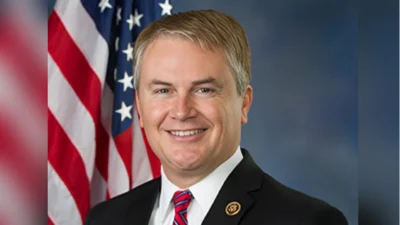WASHINGTON, D.C., May 20, 2014 - Today, the House Natural Resources Subcommittee on Fisheries, Wildlife, Oceans and Insular Affairs held an oversight hearing entitled “Oil and Gas Activities within Our Nation’s National Wildlife Refuge System." This hearing highlighted the importance of oil and natural gas production occurring in America’s National Wildlife Refuge System and examined the potential effects of increased regulations. A proposed rule by the Obama Administration’s U.S. Fish and Wildlife Service would require individuals and companies to obtain a permit to access subsurface minerals even though they already have the rights to the minerals while requiring companies to obtain a bond to produce energy on their own lands.
“Both the Fish and Wildlife Service and 43 states have oil and gas regulations. In every state in which the Service has identified active and inactive wells, regulations have been adopted which protect the environment and public safety through each stage of the extraction process," “Horizontal drilling from private lands to access oil and gas under a refuge should not fall under the Service’s jurisdiction and any future rules should not try to add a new, duplicative layer of regulation over those activities."
Witnesses appearing before the Subcommittee today offered testimony underscoring the importance of producing oil and natural gas in America’s Wildlife Refuge System and called on the Obama Administration not to overstep its legal authority with its proposed regulations on these energy production activities. Witnesses also noted that in most cases the subsurface rights to these energy resources existed before the surface lands were incorporated within the National Wildlife Refuge System.
from the Louisiana Chapter of the National Association of Royalty Owners urged caution surrounding the U.S. Fish and Wildlife Service’s proposed rule that the “service must be held to a reasonable set of regulatory management controls that does not unduly burden private mineral owners." Powell called on the Service to “not develop regulatory management tools and fees that provide a regulatory avenue to develop in theory but which creates an economic firewall to development in reality" and to ensure in its proposed rulemaking that “it allows for a balanced review of oil and gas development proposals and assesses any negative impacts of mitigation proposals on state and private mineral rights.", Vice President of Federal Resources and Regulatory Affairs at The Independent Petroleum Association of America, called the U.S. Fish and Wildlife Service’s rulemaking “premature" while questing the Service’s authority to even regulate oil and natural gas operations in the National Wildlife Refuge System saying that the Service is “limited in its authority to inhibit operations, including horizontal drilling from private lands, to access minerals under a refuge, and we expect FWS to adhere to the legal bounds of its authority. One of our biggest concerns is that the lack of jurisdiction that we believe the Service may have with this rulemaking." In addition to questioning the Service’s legal authority of this proposed rule, Naatz cited that the Service “fails to provide a legitimate purpose" for this regulation limiting oil and natural gas production activities., Senior Vice President of the Land & Energy Development at the Cook Inlet Region Inc. in Anchorage, Alaska, said that the “current apparent land management philosophy of the U.S. Fish and Wildlife Service in Alaska as it relates to oil and gas exploration on or adjacent to the refuge system can be summed up as: ‘No. Not here. Not Now.’" Citing “junk science or lack of science" in the proposed rule, Schutt questioned the Service’s authority to regulate oil and natural gas production activities on refuges. “I can think of no circumstances under which the United States Fish and Wildlife Service‘s proposed new oil and gas rules are needed or would be justified in their application in Alaska.", Director of State & Federal Relations for the State of Alaska, highlighted the importance of existing regulations that were tailored specifically for Alaska to benefit Alaskans. “There is a robust framework of existing state and federal law that rigorously regulates oil and gas development within the boundaries of the National Wildlife Refuges in Alaska. This framework is unique to Alaska and was specifically tailored by Congress to provide for the national interest and the economic and social needs of Alaskans." Knudson emphasized “how critical continued oil and gas development in Alaska’s National Wildlife Refuges can be to our citizens’ electricity and heat in addition to economic livelihood."








